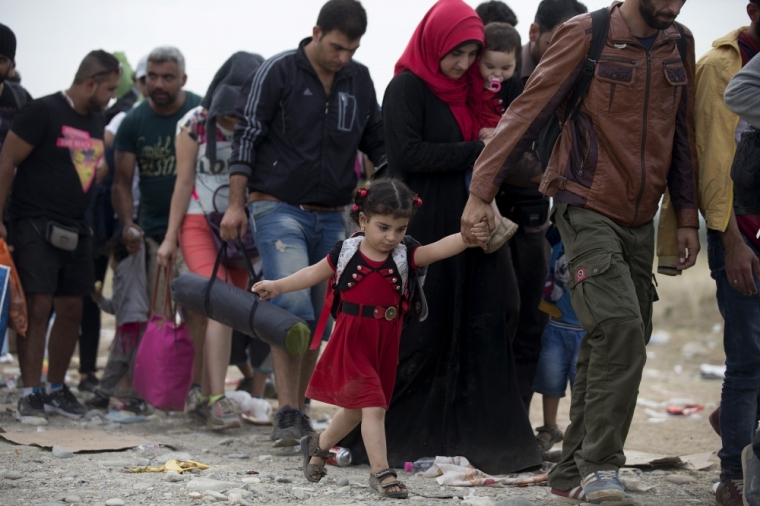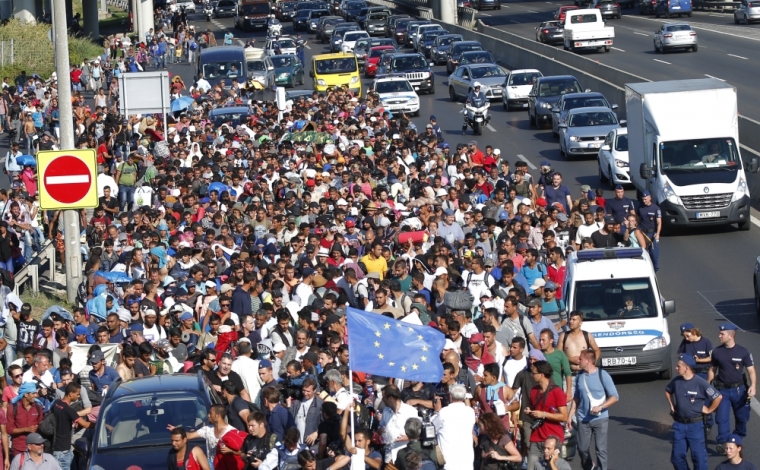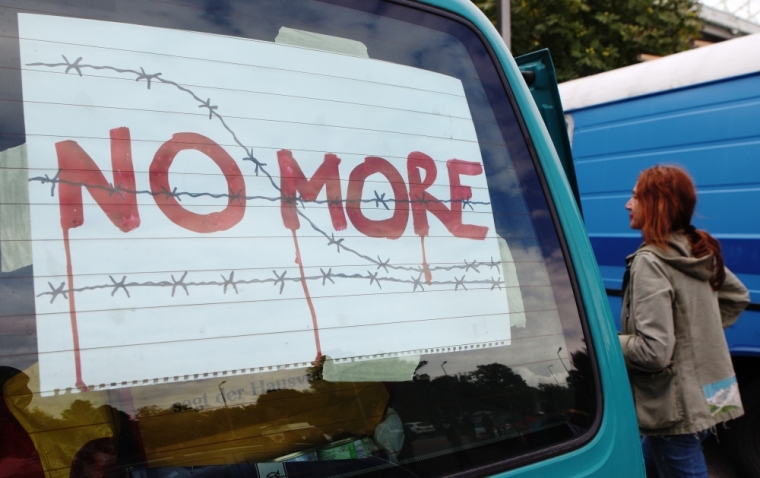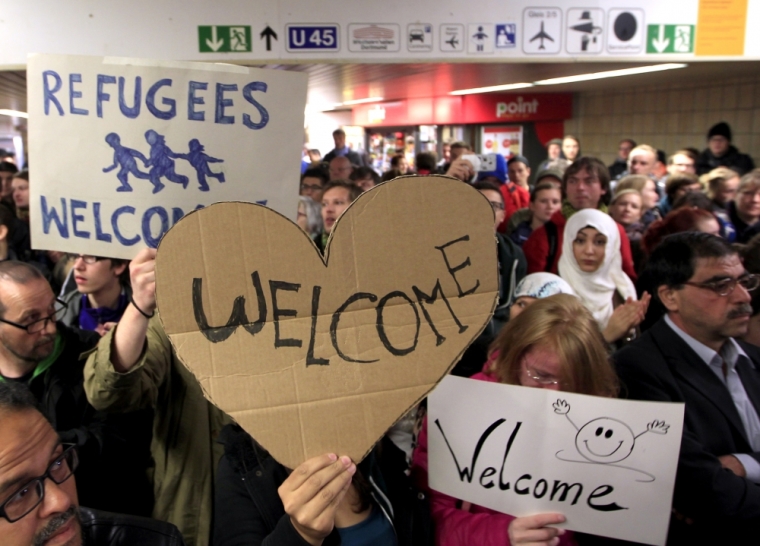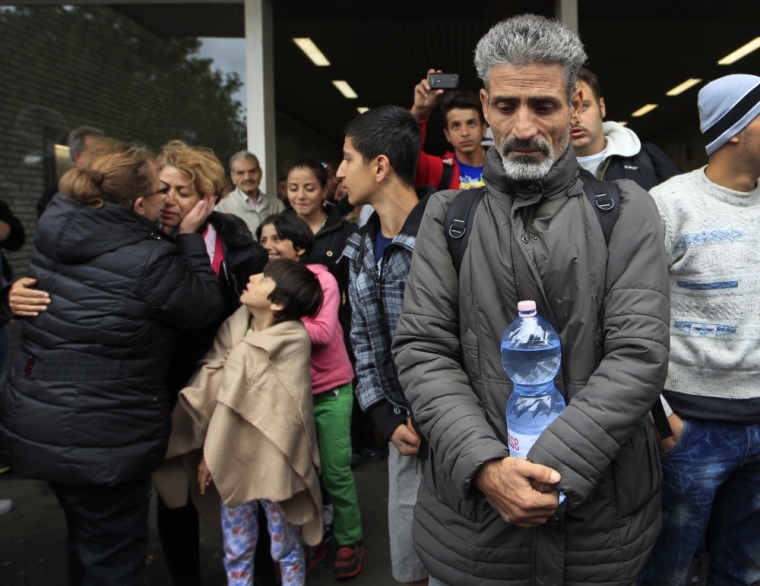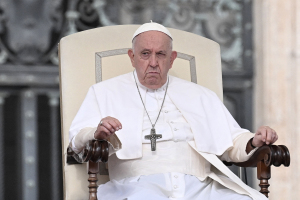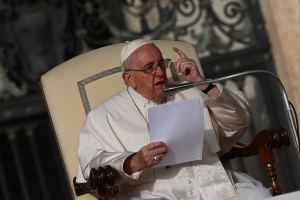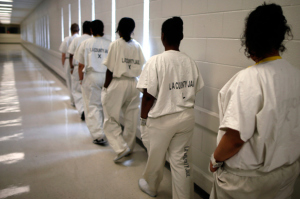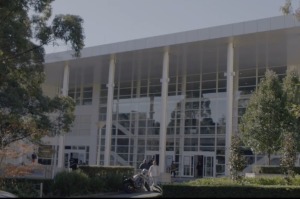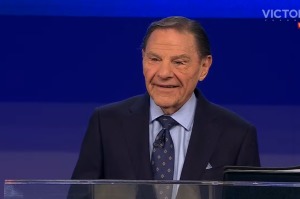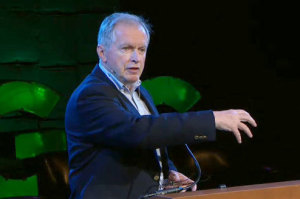Pope Francis Urges Every Parish in Europe to Host a Refugee Family; Germany and Austria Near 'Tipping Point'
Pope Francis has urged every Catholic parish and religious community in Europe to take in at least one refugee family and help Europe with its migrant crisis, noting that the Vatican would take two families itself. With hundreds of thousands of refugees making their way toward Western Europe, countries such as Germany and Austria are said to be near the "tipping point" of how much they can help.
"May every parish, every religious community, every monastery, every sanctuary of Europe, take in one family" Francis told the crowds at St. Peter's Square on Sunday.
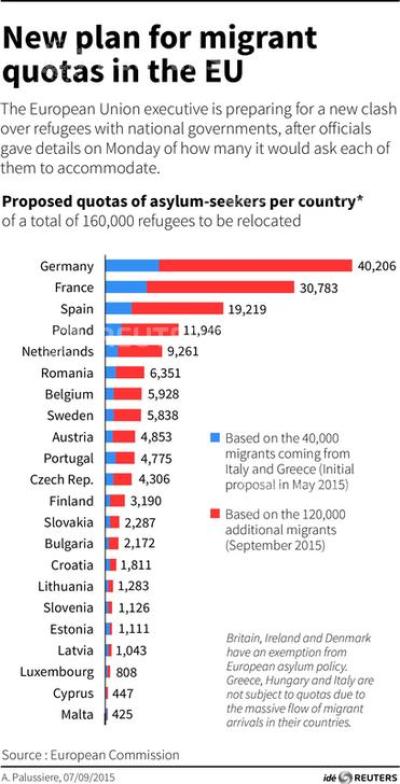
"Before the tragedy of tens of thousands of refugees fleeing death in conflict and hunger and are on a journey of hope, the Gospel calls us to be close to the smallest and to those who have been abandoned," he added, according to Vatican Radio.
The refugees, many of whom are fleeing Syria and Iraq to escape civil war and the Islamic State terror group, have been overwhelming European borders, with CNN reporting that even Germany and Austria are close to a "tipping point."
"We have helped more than 12,000 people in an acute situation," Austrian Chancellor Werner Faymann said of efforts just in the past few days.
"We must now, step by step, go from emergency measures to a normality that is humane and complies with the law."
The German city of Munich welcomed it more than 17,500 migrants over the weekend alone.
"The great helpfulness that Germany has shown in these last weeks and months should not be worn thin," the German Interior Ministry said, adding that other countries will need to step up.
German Chancellor Angela Merkel pledged an additional $3.35 billion to the migrant crisis, and said that her country is still willing to accept more refugees, but called on others to help out as well.
France and the U.K. have recently said they will be increasing their refugee quota to try and help with the crisis, while human rights groups have called on the U.S. to welcome more families too.
"Not only are Syrians resorting to desperate measures to seek a better life for themselves and their families in Europe, but they are dying in the process," International Rescue Committee president David Miliband said last week, urging America to resettle 65,000 refugees before the end of 2016.
"The U.S. has historically been the world leader in recognizing the moral obligation to resettle refugees," Miliband added. "As the German government calmly says that it expects 800,000 refugees and asylum seekers in 2015, it is vital for the U.S. to step up its response."
At the Vatican, Francis turned to the Gospel and said that the miracle healing by Jesus of a deaf and mute man, as found in Mark 7:31-37, is an important lesson that should be applied to the crisis.
"His deafness symbolizes his incapacity to listen and to understand not only the words of men, but also the Word of God," the pope said.
"Jesus healed the man and unblocked his capacity to enter into communication with others and with God. This story speaks of us because we too are often inaccessible and closed within ourselves."










